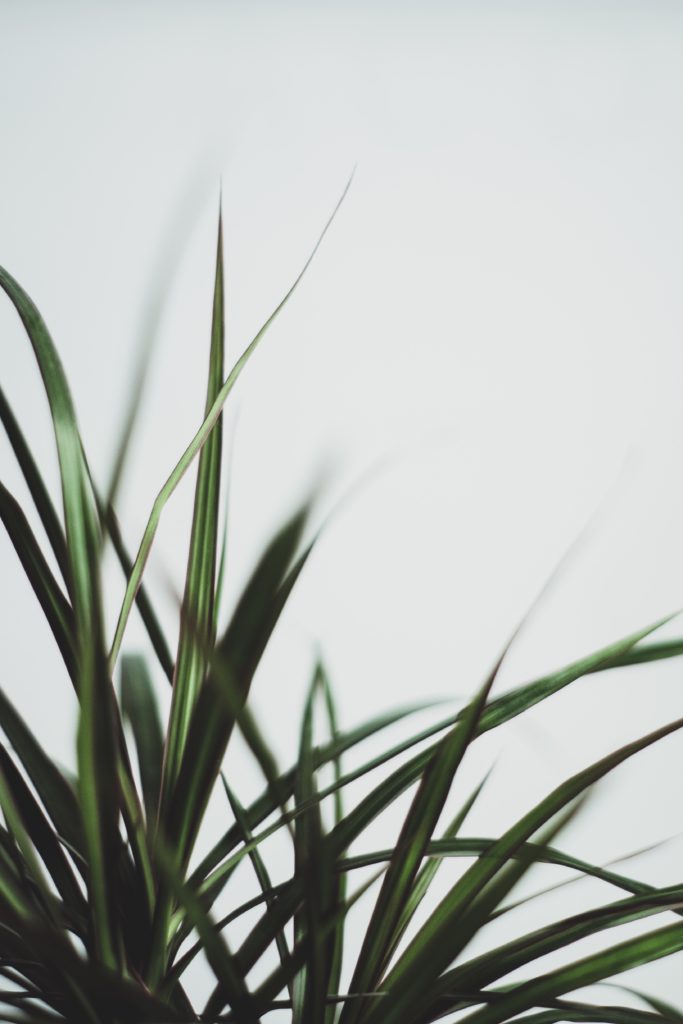Are you wondering when is the ideal time to take quercetin? This intriguing question has sparked a debate among health enthusiasts, with various opinions on whether it is more beneficial to consume this natural supplement in the morning or at night. In this article, we will explore the different factors that may influence the best time to take quercetin, allowing you to make an informed decision and optimize the potential benefits of this remarkable compound. So, grab a cup of tea and let’s delve into the fascinating world of quercetin timing!

Factors Influencing Quercetin Absorption and Effectiveness
Quercetin Bioavailability
One of the factors that can influence the effectiveness of quercetin is its bioavailability. Bioavailability refers to the degree and rate at which a substance is absorbed by the body. Quercetin has a relatively low bioavailability, meaning that only a small portion of the ingested quercetin actually enters the bloodstream. This is because quercetin is poorly soluble in water and is quickly metabolized by enzymes in the intestines and liver.
However, several studies have shown that consuming quercetin with other substances, such as fats or vitamin C, can significantly enhance its bioavailability. This means that taking quercetin with a meal that contains some healthy fats or a citrus fruit rich in vitamin C may improve its absorption and effectiveness.
Interactions with Other Substances
Quercetin may interact with other substances, both positively and negatively, which can affect its absorption and effectiveness. For example, it has been found that certain substances, such as green tea extract and bromelain, can enhance the bioavailability of quercetin. On the other hand, substances like calcium and iron can inhibit its absorption.
It is important to consider these interactions when deciding on the timing of quercetin intake. Taking into account whether you consume these substances alongside quercetin can help optimize its absorption and effectiveness.
Quercetin’s Half-Life
Quercetin has a relatively short half-life, which refers to the time it takes for the concentration of a substance in the body to decrease by half. The half-life of quercetin varies depending on the individual and the form of supplementation, but it is generally around 2 to 4 hours.
Knowing the half-life of quercetin is relevant when considering the timing of its intake. If you are looking for sustained effects throughout the day or night, it might be beneficial to split your daily quercetin dosage into multiple smaller doses.
Timing and Consistency of Quercetin Intake
The timing and consistency of quercetin intake can also play a role in its absorption and effectiveness. Some experts suggest that taking quercetin consistently at the same time every day can help optimize its absorption and overall impact on the body.
Additionally, taking quercetin with or without food can affect its absorption. Since quercetin is more soluble in fats, taking it with a meal that contains some healthy fats may enhance its absorption. However, if you prefer taking quercetin on an empty stomach, it can still be absorbed effectively.
Potential Benefits of Taking Quercetin in the Morning
Enhancing Energy Levels
Taking quercetin in the morning may help enhance energy levels throughout the day. Quercetin has been shown to have potential energizing effects by increasing mitochondrial function and improving cellular energy production. This can result in increased stamina, reduced fatigue, and improved overall energy levels.
Boosting Immune System
Quercetin has also been studied for its immune-boosting properties. It can modulate the immune response by reducing inflammation and supporting the proper functioning of immune cells. By taking quercetin in the morning, you can provide your immune system with a boost at the start of the day, which may help ward off illnesses and keep you healthy.
Providing Daytime Allergy Relief
If you suffer from allergies, taking quercetin in the morning may provide relief during the day. Quercetin has been shown to possess anti-allergic properties by inhibiting the release of histamine and other allergic mediators. By taking it in the morning, you can help reduce allergy symptoms such as sneezing, itching, and nasal congestion throughout the day.
Supporting Exercise Performance
Quercetin has been studied for its potential benefits in exercise performance. It has been shown to enhance endurance, improve oxygen utilization, and reduce exercise-induced inflammation. Taking quercetin in the morning before a workout session may aid in optimizing your exercise performance and recovery.
Potential Benefits of Taking Quercetin at Night
Promoting Relaxation and Sleep Quality
Quercetin has been suggested to have relaxing properties due to its ability to modulate neurotransmitters that promote calmness and relaxation. Taking quercetin at night may help promote a sense of calm and improve sleep quality, making it an ideal choice for individuals struggling with sleep disturbances or insomnia.
Reducing Nighttime Allergy Symptoms
Similar to its potential benefits during the day, quercetin taken at night can also help reduce nighttime allergy symptoms. By inhibiting the release of histamine and other allergic mediators, quercetin can alleviate symptoms such as sneezing, itching, and nasal congestion that often worsen during the night, allowing for a more peaceful and uninterrupted sleep.
Supporting Post-Exercise Recovery
Quercetin’s anti-inflammatory properties can also be beneficial for post-exercise recovery. By reducing exercise-induced inflammation, quercetin may aid in muscle repair and reduce muscle soreness. Taking quercetin at night after a strenuous workout may support the recovery process, allowing your body to heal and rebuild while you sleep.
Enhancing Antioxidant Activity during Sleep
During sleep, our body undergoes various repair and regeneration processes, and enhanced antioxidant activity plays a crucial role in this. Quercetin is known for its antioxidant properties, which can help neutralize harmful free radicals and protect cells from oxidative damage. Taking quercetin at night may boost antioxidant activity during sleep, supporting overall cellular health and well-being.
Considerations for Quercetin Timing
Individual Variations
It is important to note that the optimal timing of quercetin intake may vary from person to person. Factors such as individual metabolism, lifestyle, and other health conditions can influence how quercetin is absorbed and utilized in the body. It may be beneficial to experiment with different timings to find what works best for you.
Health Conditions and Medications
Some health conditions and medications may interact with quercetin, altering its effectiveness or causing undesirable effects. It is important to consult with a healthcare professional if you have any underlying health conditions or are taking medications to ensure that timing your quercetin intake does not interfere with your treatment or worsen your condition.
Taking Quercetin with or without Food
As mentioned earlier, taking quercetin with a meal that contains some healthy fats can enhance its absorption due to its fat solubility. However, if you prefer to take quercetin on an empty stomach, it can still be absorbed effectively. Ultimately, the choice to take quercetin with or without food depends on personal preference and comfort.
Personal Preference and Comfort
Lastly, personal preference and comfort should be considered when deciding on the timing of quercetin intake. Some individuals may find it more convenient to take quercetin in the morning, while others may prefer taking it at night. Listening to your body and finding a routine that aligns with your daily activities and goals can help ensure consistency and adherence to quercetin supplementation.

Expert Recommendations and Studies
Expert Opinion on Morning Intake
Experts generally agree that taking quercetin in the morning can be beneficial due to its potential to enhance energy levels, boost the immune system, provide daytime allergy relief, and support exercise performance. The energizing and immune-boosting effects of quercetin are particularly advantageous during the day when you need optimal energy and protection from potential allergens.
Expert Opinion on Nighttime Intake
Experts also suggest that taking quercetin at night can have its advantages. The relaxing properties of quercetin make it suitable for promoting better sleep quality and reducing nighttime allergy symptoms. Additionally, quercetin’s ability to support post-exercise recovery and enhance antioxidant activity during sleep can contribute to overall well-being.
Scientific Studies and Findings
Several scientific studies have investigated the effects of quercetin timing and have provided valuable insights. A study published in the Journal of the American College of Nutrition found that taking quercetin one hour before exercise resulted in enhanced endurance and reduced inflammation compared to a placebo group. Another study published in the European Journal of Applied Physiology showed that taking quercetin in the evening improved sleep quality in individuals with sleep disturbances.
While more research is needed to fully understand the optimal timing of quercetin intake, these studies indicate that both morning and nighttime consumption can offer potential benefits depending on individual goals and preferences.
Optimal Quercetin Dosages and Duration
Recommended Daily Dosage
The optimal dosage of quercetin can vary based on individual needs and health conditions. However, a common dosage range for quercetin supplementation is between 500 to 1000 milligrams per day. Starting with a lower dosage and gradually increasing it, if needed, allows for assessing individual tolerance and effects. It is recommended to consult with a healthcare professional to determine the most appropriate and safe dosage for your specific circumstances.
Duration of Quercetin Supplementation
The duration of quercetin supplementation also depends on individual goals and preferences. While some individuals may benefit from short-term use during specific periods, such as allergy seasons or intense workout periods, others may choose to incorporate quercetin as part of their long-term health routine. It is important to note that quercetin is considered safe for most individuals when taken within recommended dosages, but continuous prolonged use should be discussed with a healthcare professional.

Possible Side Effects and Precautions
Potential Side Effects
Quercetin is generally well-tolerated, and most individuals do not experience any adverse effects when taken within the recommended dosages. However, some rare side effects may occur, including headaches, stomachaches, and tingling sensations. If you experience any unusual or severe side effects, it is important to discontinue the use of quercetin and seek medical attention.
Drug Interactions
Quercetin may interact with certain medications, especially those metabolized by the liver. It may affect the absorption or metabolism of medications, potentially altering their effectiveness or increasing the risk of side effects. It is crucial to inform your healthcare professional about any medications you are taking to determine if there are any potential interactions with quercetin.
Precautions for Specific Groups
Quercetin supplementation may not be suitable for everyone. Pregnant or breastfeeding women should consult with their healthcare provider before using quercetin. Individuals with specific health conditions, such as kidney disease or liver disorders, should also seek guidance from a healthcare professional before starting quercetin supplementation.
Conclusion
In conclusion, the timing of quercetin intake can impact its absorption and effectiveness, but the optimal timing may vary depending on individual factors and goals. Taking quercetin in the morning can provide benefits such as enhanced energy levels, immune support, daytime allergy relief, and improved exercise performance. On the other hand, taking quercetin at night may promote relaxation, reduce nighttime allergy symptoms, support post-exercise recovery, and enhance antioxidant activity during sleep.
Considering individual variations, health conditions, medications, and personal preferences is important when deciding on the timing of quercetin intake. Consulting with a healthcare professional can provide personalized guidance based on your specific circumstances. Additionally, scientific studies and expert opinions suggest that both morning and nighttime consumption of quercetin can offer potential benefits.
It is crucial to adhere to recommended dosages and pay attention to possible side effects or interactions. Quercetin supplementation should be approached with caution and discontinued if any adverse effects occur. By understanding the factors influencing quercetin absorption and effectiveness, as well as considering individual needs, a well-informed decision can be made regarding the timing of quercetin intake to optimize its potential benefits.






